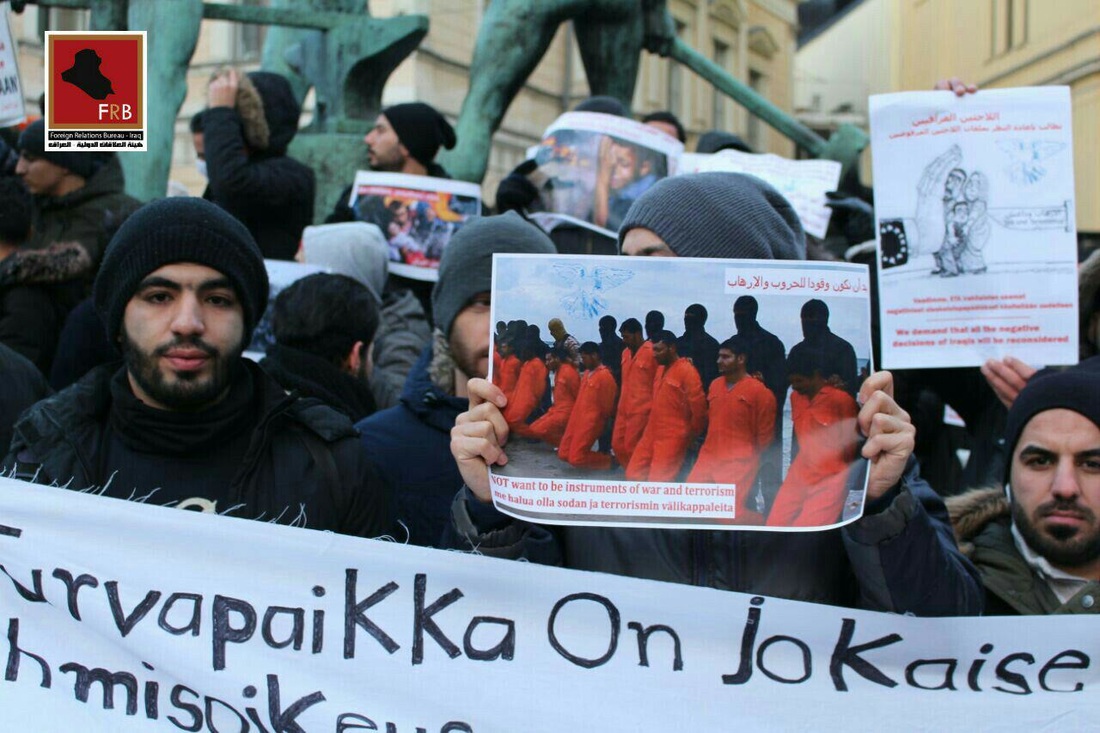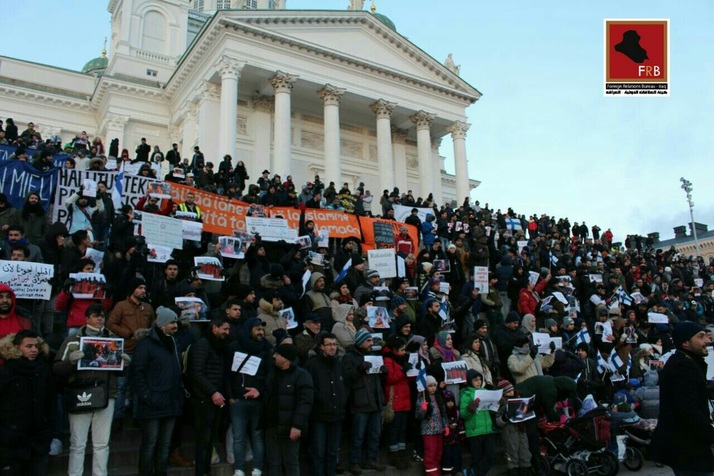“We are here to challenge the government position”, one of the organisers told FRB, and "to apply enough pressure until Finland reviews its decision to forcible deport us", he said. He added that while those whose applications are rejected are granted the right to appeal, these “are rarely won”.
“After they receive their second rejection, Iraqis are left homeless, without shelter, cash or assistance”, he expressed remorsefully.
The signs protesters held, and expressions worn on their faces, mirrored the anger, general frustration and fear felt by people at risk of becoming either undocumented migrants, or worse, being returned to Iraq.
In late 2015, hundreds of families and singletons voluntarily abandoned their asylum claims and returned home. Yet return for those that have remained is not an option.
"When legal changes were first announced, many Iraqis, on their own volition, took steps to fly back home. These are people that can return home. They are not from war ravaged provinces like those of us still here”, claimed another demonstrator.
The war against the Islamic State has spawned an exceptionally fierce climate, particularly in areas where military operations are underway. Deportation risks placing those - that escaped death by the skin of their teeth - in the very same situation.
FRB spoke to countless youths and families whose applications had been hampered, delayed, and at worst, rejected in absence of an explanation.
Without clearly defined procedures, many feel their lives have become a game of roulette, beyond their grasp, as one man described.
“A good 70% of my beloved city has been pulverised, and Baghdad, however much they claim, is not a place where I will be welcomed”.
Another male argued that “the entire world knows very well what became of Fallujah, Mosul, Salahuddin, and Tikrit, and the dangers that individuals from these provinces, will be up against once deported”.
“Under these false assessments, Iraqis are being denied their most basic rights”, a young man from Mosul told FRB. “I’m not only talking about myself, there are thousands more just like me”. He and his friends hail from newly ‘liberated’ provinces, where the Islamic State was once embedded.
As we see broadcasted on an hourly basis on our television sets, liberation is never without destruction. “It does not translate into return”, one man bellowed. In many cases civilians have been barred from returning back to their towns and villages by security forces, as clashes in these areas, between militia forces and the Islamic state, rage on.
Despite that, former residents of these areas do not qualify for asylum in Finland, irrespective of the evidence they present.
“To what purpose would I cross through 11 different countries? Simply to live in Finland, why would I jeopardise my life in this way”, protested another Iraqi.
The demands voiced on Saturday, and before, are glaringly apparent; namely for the Finnish government to protect Iraqis that will be placed in harm's way, if deported home.
It remains to be seen whether the Finnish government will revise its laws and guarantee humanitarian protection to those that are in need. It seems, for now at least, that the fears of the Iraqi community in Finland will not be eased.
A resident of Helsinki told FRB that "our government did not think their decision through when they set the laws, because now we are driving thousands of Iraqi people onto the streets, who end up undocumented". When asked if Iraq is a safe country, the young lady responded "no, it goes without saying".



 RSS Feed
RSS Feed